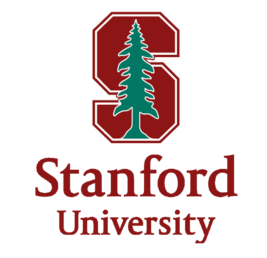Important Info
Please the the required application materials to li.wang2@stanford.edu(link sends e-mail)
The Human Brain Development Lab (www.liwanglab.org(link is external)) at Stanford University, led by Dr. Li Wang in the Department of Biology and the Institute for Stem Cell and Regenerative Medicine, is seeking postdoctoral fellows to join our team beginning October 2025.
Research Themes and Projects:
We are an interdisciplinary research team integrating single-cell and spatial genomics, lineage tracing, synaptic proteomics, functional perturbation screening, and machine learning to investigate how the human brain develops diverse cell types and forms complex neural circuits. We are particularly interested in how these developmental programs are disrupted in neurodevelopmental disorders and brain tumors. Grounded in human biology and evolution, our work aims to uncover the molecular logic underlying human-specific neuronal differentiation and synaptic connectivity, with the goal of translating these insights into mechanistic understanding and therapeutic strategies. Key focus areas include:
-
Neural Stem Cell Lineages in Development and Brain Tumors
We investigate how neural progenitors generate diverse cell types during human brain development, and how these developmental programs can be aberrantly reactivated in brain tumors. Ongoing projects include developing novel single-cell genomic approaches for lineage tracing of human neural progenitors, performing cross-species comparisons to identify human-specific developmental features, and mapping tumor clonal evolution to uncover stem-like states that drive malignancy.
-
Synaptic Diversity and Neural Communication in Development and Disease
We explore how synaptic identity and function are established and regulated across brain regions, cell types, and developmental stages, and how synaptic interactions may contribute to tumor progression. Ongoing projects include developing next-generation subcellular proteomic tools to map synaptic composition across species and circuits, and characterizing tumor-neuron synapses that may promote glioma proliferation and invasion.
About the PI:
Dr. Li Wang is a developmental neurobiologist with interdisciplinary training in genomics, proteomics, and neuroscience. His research seeks to understand how cellular and synaptic diversity arises during human brain development and evolution, and how these same mechanisms may be hijacked in diseases such as brain cancer.
Li received his B.S. from Fudan University, where he studied synaptic plasticity during critical periods in the visual cortex. During his Ph.D. with Dr. Huda Zoghbi at Baylor College of Medicine, Li explored the molecular basis of neurodevelopmental disorders, uncovering how mutations in synaptic genes disrupt neural function (Mol Psychiatry, 2020a(link is external); Mol Psychiatry, 2020b(link is external), Genome Research, 2020(link is external)). His postdoctoral work with Dr. Arnold Kriegstein at UCSF expanded this focus to human brain development. He generated multi-omic atlases and cross-species proteomic maps that revealed novel progenitor cell types (Nature, 2025(link is external); Cell Stem Cell, 2023(link is external)) and human-specific synapse maturation programs (Nature, 2023(link is external)), with implications for cognition and brain cancer. Li will launch his independent lab at Stanford University in October 2025, where he will continue to investigate human brain development with a focus on stem cell lineages and synaptic diversity. See https://scholar.google.com/citations?user=09RosEoAAAAJ(link is external) for a complete publication list.
Li has received many awards, including the NIH K99/R00 Pathway to Independence Award, the Trainee Professional Development Award from the Society for Neuroscience, the Keystone Symposia Scholarship, the Dennis Weatherstone Predoctoral Fellowship from Autism Speaks, and the Dean’s Award for Excellence from Baylor College of Medicine.
- Ph.D. and/or M.D. and a strong background in one or more of the following areas: computational biology, genomics, biochemistry, or neuroscience.
- A strong publication record demonstrating expertise in the relevant field.
- Team-oriented and collaborative, with the ability to lead independent projects.
- CV
- A brief statement of research interests
- Contact information for 2-3 references


